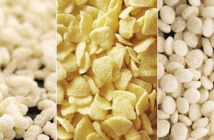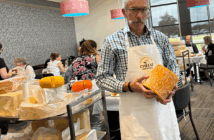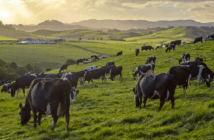By Food Futurist, Tony Hunter
Will ‘human inedible’ foods even exist in the future? One of the arguments in favour of animal agriculture production is that animals upcycle human inedible products to human edible food. It’s long been my contention that there’s no such thing as human inedible products, just not yet used for human food products. Yes, even grass, but that’s for another article.
An example of this is the use of sunflower press-cake as animal feed. Sunflower seed oil is the fourth largest vegetable oil source globally with nearly 19 million metric tons produced in 2021/22. This translates to the production of over 20 million metric tons of sunflower press-cake. Currently much of this is used for animal feed as it’s viewed as a waste product. However, that’s not all it can be used for, with Israel based More Foods already using the press-cake in their alternative protein products.
There’s also an EIT-Food funded Taste2Meat research project to optimise upcycling the press-cake as an ingredient to produce high protein, sustainable alternative meat products. Partners in the project include DSM, DIL German Institute of Food Technologies, University of Helsinki, and ABP Beef. The participation of ABP Beef is another example of how meat companies are becoming protein companies.
Imagine the gain in the global food supply if much of these 20 million tons of press-cake become human food.
An example of the problem animal agriculture producers face from such upcycling is illustrated by a story from a colleague of mine developing human edible products from brewers spent grain. He was at a meeting where some cattle producers were present, and the producers were appalled that he would ‘steal’ their free feedstock. Another ‘waste’ product being upcycled.
Animal agriculture will have to face the possibility of their waste stream feedstock sources slowly drying up. Over the next couple of decades more and more upcycling of human inedible waste products to human edible products will happen. Eventually the industry may have to face the full cost impact of feedstock, which will likely raise meat prices, while alternative protein products continue to get cheaper, tastier and more sustainable.
Tony Hunter is a global futurist, food scientist, speaker and foresight strategy consultant. He consults and speaks globally, using his distinctive combination of scientific qualifications, business experience and detailed understanding of exponential food technologies to deliver a unique perspective on the future of food.





























































































